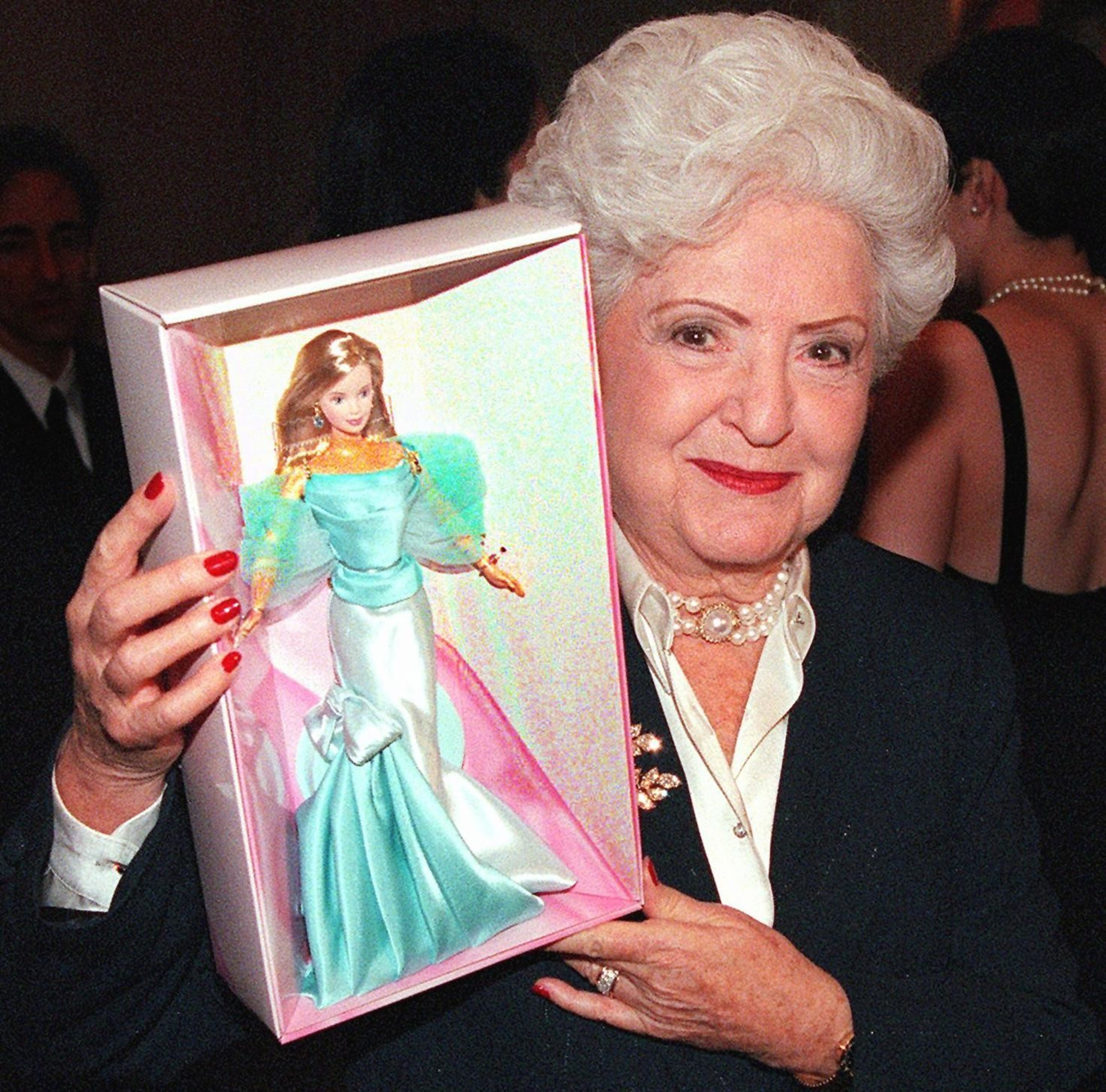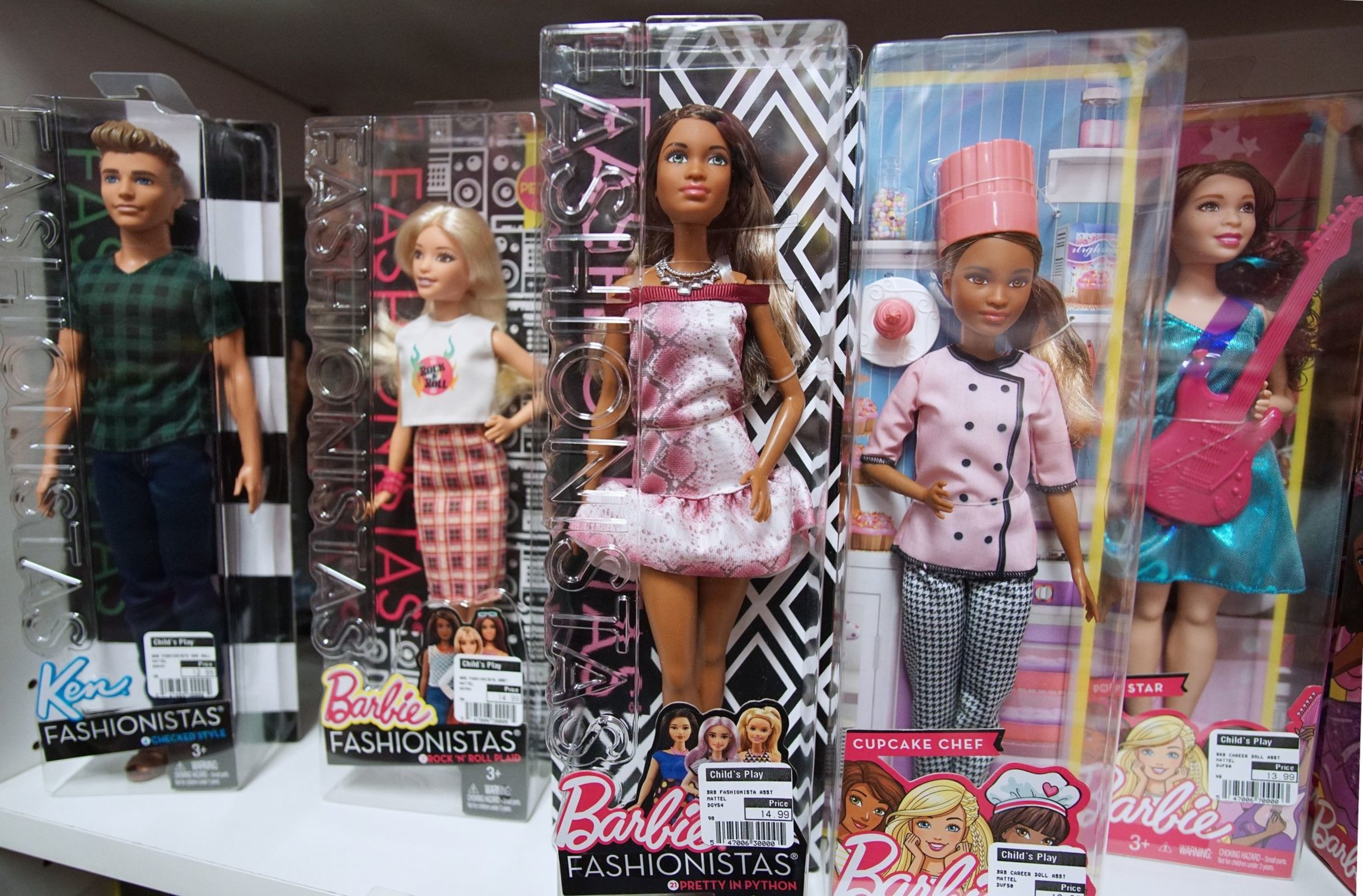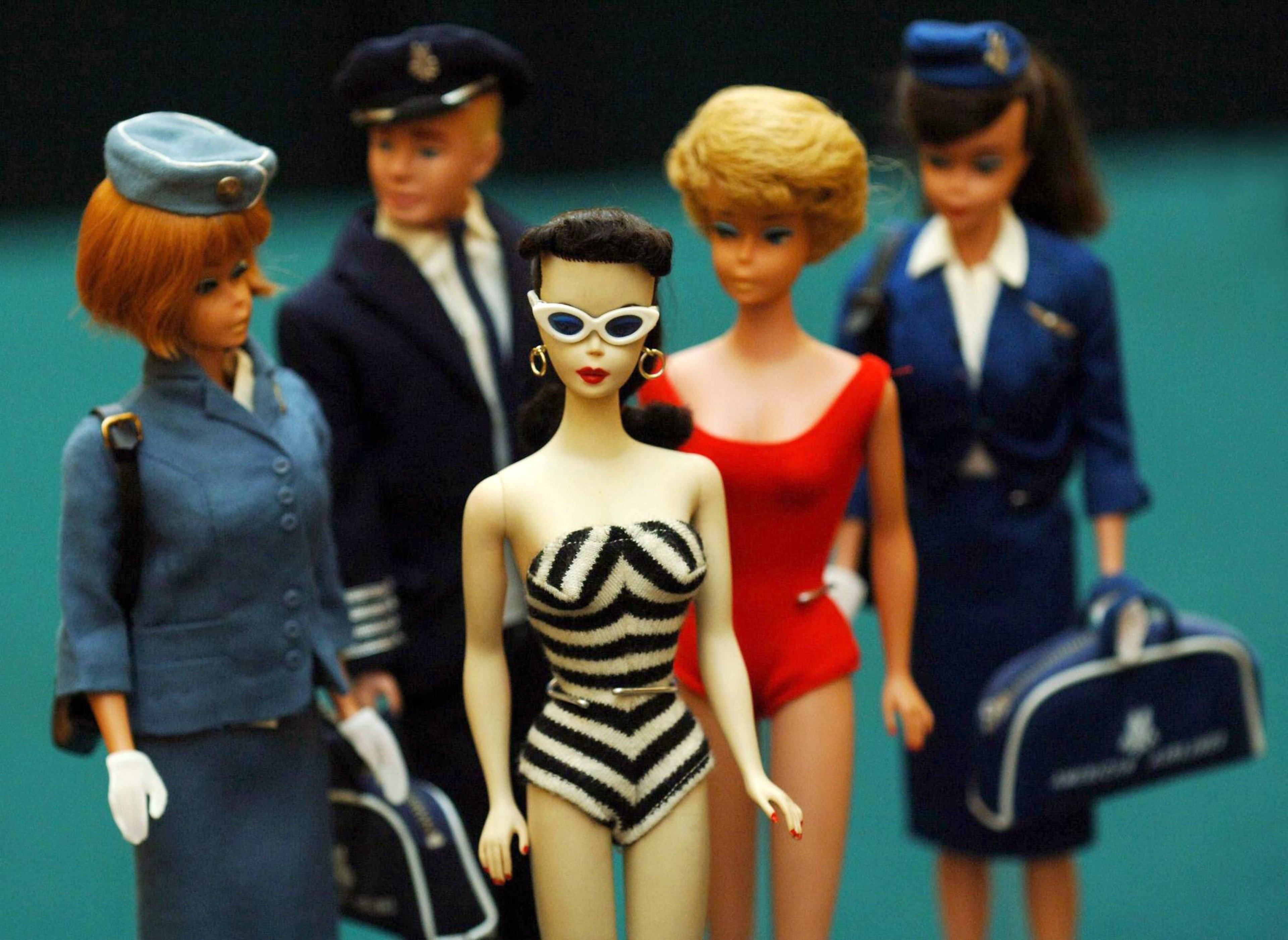This weekend is all bubblegum pink and dollhouses as viewers flock to theaters for Greta Gerwig’s 21st century film rendition of Barbie. Starring A-listers Margot Robbie and Ryan Gosling as Barbie and Ken, the film’s whimsical aesthetics have inspired dozens of Barbie-themed marketing campaigns.
But some 60-plus years ago, Barbie nearly faced the chopping block as toy company Mattel’s male designers and marketing experts (opens in new tab) failed to see the vision in a doll with a woman’s body.
“When I conceived [of] Barbie, I believed it was important to a little girl’s self-esteem to play with a doll that has breasts,” said Ruth Handler, Mattel co-founder (opens in new tab) and the woman credited with creating Barbie in 1959. Handler’s team of male designers told her that the Barbie doll she wanted to create was impossible to make (opens in new tab) and impossible to popularize in a world where paper dolls reigned supreme.
READ MORE: Trying To Catch ‘Barbie’ or ‘Mission: Impossible’? Here’s All of San Francisco’s Movie Theaters

Today, even as Barbie reaches new cultural heights, companies founded by and for women are still relatively rare because investors tend to favor (opens in new tab) male leadership. Handler’s difficulty convincing Mattel’s marketing and design experts of Barbie’s appeal is a story that resonates with the modern challenges faced by female leadership.
“We have got to start getting more venture capitalists that are women, more investors that are women,” said Julie Castro Abrams, CEO of How Women Lead, an organization dedicated to helping women reach leadership positions. “Only 24 women have ever founded a company that went public on the New York Stock Exchange—not because women aren’t as talented.
“The men who have been traditional venture capitalists just can’t see it,” Abrams added. The most recent venture figures aren’t very promising, either.
Woman-founded companies (opens in new tab) still struggle to get investor dollars, representing just 2% of all capital invested in U.S. venture-backed startups in 2022—even though venture funding for female-founded or co-founded companies has edged upward in recent years, propelled in part by the #MeToo movement and a reckoning over gender discrimination (opens in new tab) within the venture industry.
For scrappy startup founders, first-time financings continue to overwhelmingly favor men: Roughly 80% of early-stage investing went to all-male teams in 2022 and in the first six months of 2023. Women-only teams represent less than 10% of all first-time financings.
“I know a fifth-time founder, one of the founders of Match.com, who has been doubling her revenue every year—she’s killing it,” Abrams said. “But there are these male VCs that she goes and pitches to, who can’t see it. They can’t see her solution, and they can’t see her as the leader.”
Abrams is starting an initiative—the New Table Campaign—in San Francisco that aims to “disrupt the venture capital landscape and propel women into their rightful seats on boards across the globe.” Abrams’ team pledges to bring 10,000 women into the world of venture capital investing in order to diversify the pool of people that throw funds and support to startups and founders.
“There is sometimes a trend of women entrepreneurs not wanting to do the femme-tech or family tech [startups] because they’re afraid that they’re going to be siloed. At the same time, these are enormous markets that shouldn’t be ignored,” said Fran Maier, a serial entrepreneur who co-founded Match.com and runs equipment rental company BabyQuip. “It comes down to the need for more female investors, and we need female VCs to take risk on earlier-stage companies more often.”
Barbie has had over 250 different careers in her 64 years of life (opens in new tab). Though she’s once been an astronaut, a journalist and an entrepreneur, Abrams says she’s never seen Barbie hold court at the head of the boardroom table.

“Why don’t we have Barbie the venture capitalist or Barbie the investor?” Abrams asked. “We need more women investing in venture capital, and we’ve got to make it ubiquitous. It’s a power play, and it’s how you make real money in this country.”
